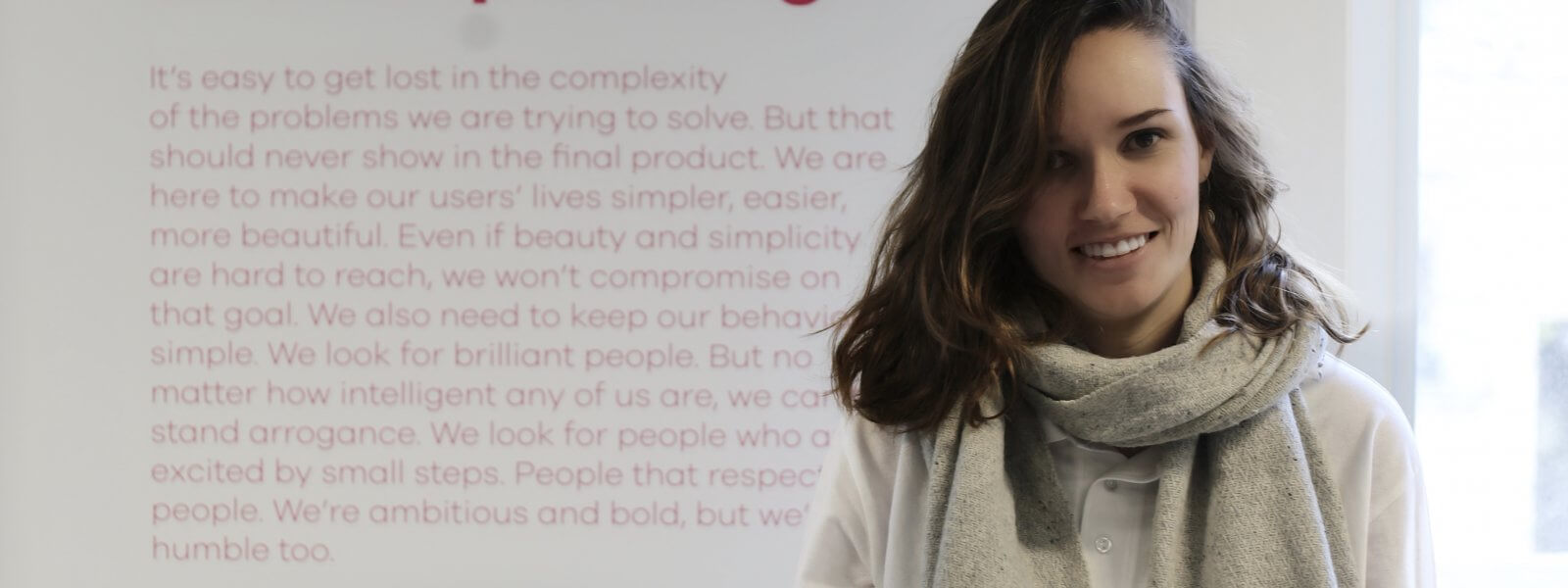Working at Dreem: Eden Debellemaniere, Researcher

Scientific research has always been at the very heart of what we do at Dreem. As a consequence, Dreem HQ is a place that buzzes with energy, full of exciting discoveries, interesting projects and best of all, brilliant people. We thought it’s time for you to meet some of them. One of our resident research engineers, Eden Debellemaniere recently defended her PhD thesis “Optimizing deep sleep using innovative, non-invasive methods”. We caught up with her so she could tell us a little more about it.
Hey Eden, can you give us a little back-story about your thesis and Dreem?
Eden Debellemaniere: I work in the research department at Dreem. For the past 3 years, I was a research engineering and PhD student with the “CIFRE-Défense” facility. This allowed me to both work in a laboratory- at IRBA and at the Hôtel Dieu hospital- as well as with Dreem. The idea was that my thesis would be useful to both entities. I kept in mind that what I found would be applicable to Dreem, so it addresses relaxation, hypnosis and sound stimulation as well as deep sleep.
And how did Dreem come into the story?
Eden Debellemaniere: My background is in biomedical sciences and previous internships in sleep labs and hospitals. I wanted my thesis to be about sleep, and in Paris. I contacted IRBA who had a super interesting subject on sleep restriction, but no funding. At this point, Dreem has just started out and they had no research department or anything like that in place- so I said: “Hey I think I can help you out with that, and you can help me out with this”. A sort of mutual exchange of ideas was put in place.
Can you tell us a bit more about the initial aim of your thesis?
Eden Debellemaniere: People generally sleep less than they should. They sleep on average 6 hours a night when really they should be sleeping 8, and this has repercussions across the board for them. Usually, these people can’t sleep for longer- they don’t have the time, and so we wanted to optimize the sleep time they do have.
People can’t sleep for longer […] we wanted to optimize the sleep time they do have.
There’s an increasing amount of evidence regarding the role of deep sleep in the scientific literature. We hypothesized that optimizing this sleep stage with new innovative and non-invasive tools would limit their deficits when confronted with a sleep debt.
What did your process look like?
Eden Debellemaniere: First, we addressed the role of hypnotic suggestion. We investigated whether this technique could deepen sleep (which was already shown in literature but for naps only). And whether it could help subjects fall asleep quicker.
We then studied the impact of sound stimulation in deep sleep. What its effects are, especially in sleep-deprived subjects. Then does deep sleep stimulation allow us to limit degradation or speed up recovery after a period of sleep restriction?
Hypnotic suggestion had benefits on the sleep depth and duration in people with a small sleep debt. In people with a more substantial sleep debt, a decrease in impulsiveness was seen during both the sleep-restriction and recovery periods.
And how did you show this?
Eden Debellemaniere: Regarding auditory stimulation, we first published a paper showing the accuracy and the pertinence of the Dreem headband to record sleep and stimulate slow oscillations. We then used it in a lab protocol where people were sleep deprived and received stimulation during this period. What we observed was that sound stimulation improved subjective somnolence (how tired these people felt) in the period right after the sleep restriction (i.e. the recovery period).
We observed that sound stimulation improved subjective somnolence […] it also improved cognitive impulsiveness
It also improved cognitive impulsiveness on average, during the day. For example, a test where subjects had to click a button when an arrow appeared on screen. It sounds super easy but when we’re sleep deprived it’s actually pretty hard! We saw that when they received sound stimulation during the period of sleep restriction they performed better during the period of recuperation.
My thesis showed is that while there’s little to be done when we’re sleep deprived. But also that we can benefit from some action afterwards, when sleep debt dissipates.
What’s coming up next for you at Dreem?
See what we can do with our partners as part of the research team. Which is already something I did a lot during my thesis. We’re also exploring ways in which we can make the headband available for academic research.
Thanks to Eden Debellemaniere for this interview! You can find out more about the work of our Research department here.
Discover your sleeper profile with this sleep test
Start



